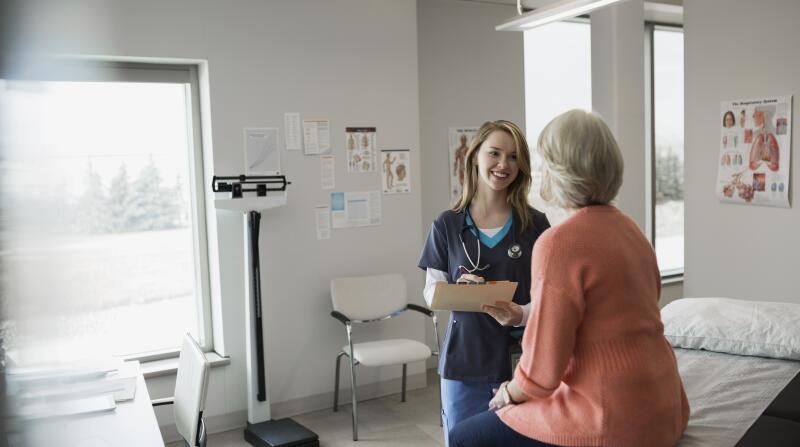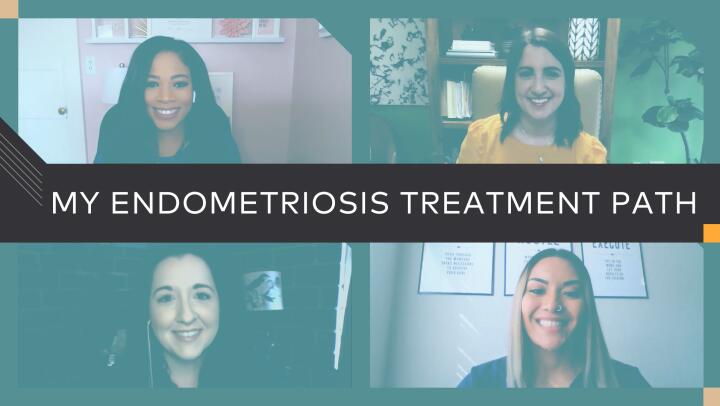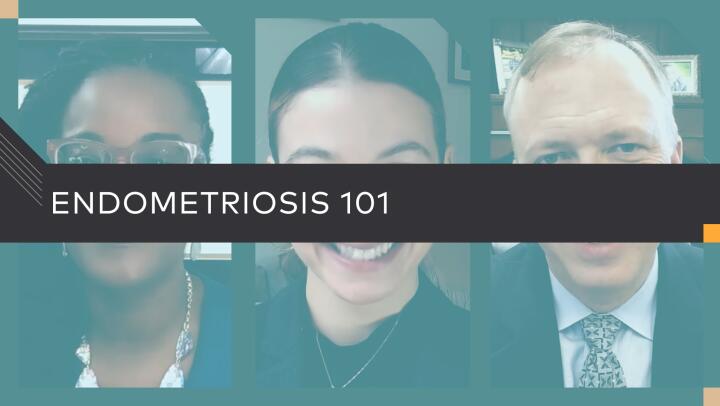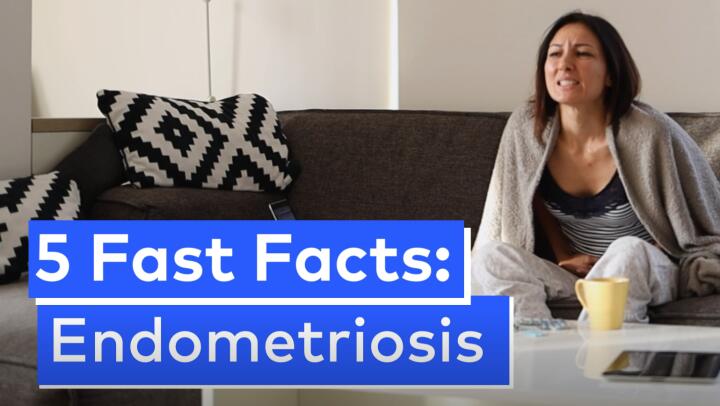Endometriosis: 10 Things Doctors Want You to Know

Medically Reviewed By William C. Lloyd III, MD, FACS
Written By Nancy LeBrun on October 14, 2020
-
 Period pain affects many women, but as many as 1 in 10 suffer from endometriosis.There is a host of reasons for severe period and pelvic pain. Endometriosis is one of them, but many women don’t get treated for it because they don’t tell their doctors about their pain. If your periods take you out of action, you are having trouble getting pregnant, or sexual intercourse is painful, you may have endometriosis. Find out what board-certified Ob/Gyns say about this common condition.
Period pain affects many women, but as many as 1 in 10 suffer from endometriosis.There is a host of reasons for severe period and pelvic pain. Endometriosis is one of them, but many women don’t get treated for it because they don’t tell their doctors about their pain. If your periods take you out of action, you are having trouble getting pregnant, or sexual intercourse is painful, you may have endometriosis. Find out what board-certified Ob/Gyns say about this common condition. -
 1. “We see endometriosis almost anywhere in the pelvic region.”“Endometriosis is the presence of endometrial tissue that’s normally inside the uterus, found outside the uterus,” says Kristin Patzkowsky, MD, an Ob/Gyn at Johns Hopkins Hospital in Baltimore. The typical places are on the ovaries, in the space between the uterus and the rectum, the space between the uterus and the top of the bladder, and also the space underneath the ovaries.” It can also affect tissue near or in the bowel, bladder or even the diaphragm. Endometrial tissue swells and bleeds in reaction to monthly hormonal changes, just like in the uterus, and that’s what causes the pain.
1. “We see endometriosis almost anywhere in the pelvic region.”“Endometriosis is the presence of endometrial tissue that’s normally inside the uterus, found outside the uterus,” says Kristin Patzkowsky, MD, an Ob/Gyn at Johns Hopkins Hospital in Baltimore. The typical places are on the ovaries, in the space between the uterus and the rectum, the space between the uterus and the top of the bladder, and also the space underneath the ovaries.” It can also affect tissue near or in the bowel, bladder or even the diaphragm. Endometrial tissue swells and bleeds in reaction to monthly hormonal changes, just like in the uterus, and that’s what causes the pain. -
-
 2. “Make sure your Ob/Gyn listens when you talk about severe period pain.”“Moms have always told daughters that pain is perhaps normal, and when a patient is complaining about pain, [even doctors] are not always taking that seriously and doing the proper workup,” says Kathy Huang, MD, director of the Endometriosis Program at NYU’s Langone Health. “One thing I always try to convey is that pain is not normal and if you haven’t found someone that has heard you, then you need to find somebody else.” It’s all too common for a woman to suffer with endometriosis for years, when effective treatment is available.
2. “Make sure your Ob/Gyn listens when you talk about severe period pain.”“Moms have always told daughters that pain is perhaps normal, and when a patient is complaining about pain, [even doctors] are not always taking that seriously and doing the proper workup,” says Kathy Huang, MD, director of the Endometriosis Program at NYU’s Langone Health. “One thing I always try to convey is that pain is not normal and if you haven’t found someone that has heard you, then you need to find somebody else.” It’s all too common for a woman to suffer with endometriosis for years, when effective treatment is available. -
 3. “We can treat you for endometriosis even if the diagnosis isn’t firm.”“If someone comes in saying they have pain with periods that’s severe, or keeps them from doing work, then we say ‘you could have endo’ so you can begin treatment,” says Dr. Patzkowsky. “In order to get a definitive diagnosis, you have to have surgery, but it is acceptable to treat someone with something like hormonal birth control which often controls the symptoms,” says Kari Braaten, MD, an Ob/Gyn with Brigham and Women’s Hospital in Boston. “What hormone therapy does is keep the implant from shedding and bleeding, by keeping the hormone levels constant,” she explains.
3. “We can treat you for endometriosis even if the diagnosis isn’t firm.”“If someone comes in saying they have pain with periods that’s severe, or keeps them from doing work, then we say ‘you could have endo’ so you can begin treatment,” says Dr. Patzkowsky. “In order to get a definitive diagnosis, you have to have surgery, but it is acceptable to treat someone with something like hormonal birth control which often controls the symptoms,” says Kari Braaten, MD, an Ob/Gyn with Brigham and Women’s Hospital in Boston. “What hormone therapy does is keep the implant from shedding and bleeding, by keeping the hormone levels constant,” she explains. -
 4. “The amount of endometriosis you have does not always equal the severity of your pain.”Doctors describe endometriosis in four stages that reflect the amount of endometrial tissue present, but not the intensity of the symptoms. “I can’t tell you how often I’m in the OR, doing surgery for fibroids, and surprise, there’s stage four endometriosis. The symptoms don’t correlate with the extent of disease. You can have stage one and have horrible symptoms,” says Dr. Patzkowsky. “Endometriosis can also be under diagnosed because the symptoms can be somewhat vague, in that one of the symptoms is no symptoms.” If you don’t have symptoms, you may not need treatment.
4. “The amount of endometriosis you have does not always equal the severity of your pain.”Doctors describe endometriosis in four stages that reflect the amount of endometrial tissue present, but not the intensity of the symptoms. “I can’t tell you how often I’m in the OR, doing surgery for fibroids, and surprise, there’s stage four endometriosis. The symptoms don’t correlate with the extent of disease. You can have stage one and have horrible symptoms,” says Dr. Patzkowsky. “Endometriosis can also be under diagnosed because the symptoms can be somewhat vague, in that one of the symptoms is no symptoms.” If you don’t have symptoms, you may not need treatment. -
 5. “Endometriosis causes painful intercourse in some women.”If you have sharp pains or a deep ache during sexual intercourse, it may be due to endometriosis. “Pain with intercourse can be caused by a wide variety of things, but patients who have endometriosis are more likely to have pain with deep penetration, and that’s because the implants of endometriosis can be behind the uterus, an area that gets jiggled and jostled during intercourse,” says Dr. Braaten. Hormonal therapy can prevent those implants from swelling, which reduces or eliminates the pain.
5. “Endometriosis causes painful intercourse in some women.”If you have sharp pains or a deep ache during sexual intercourse, it may be due to endometriosis. “Pain with intercourse can be caused by a wide variety of things, but patients who have endometriosis are more likely to have pain with deep penetration, and that’s because the implants of endometriosis can be behind the uterus, an area that gets jiggled and jostled during intercourse,” says Dr. Braaten. Hormonal therapy can prevent those implants from swelling, which reduces or eliminates the pain. -
-
 6. “We are careful about recommending surgery for endometriosis.”Doctors can remove endometrial implants surgically, but advise it only in certain cases. “There’s no difference in medical versus surgical management for early stage endometriosis, and there are clear indications for surgery,” says Dr. Patzkowsky. These include when hormones don’t work, if you want to get pregnant, or if you can’t take birth control pills. “The risk-benefit balance between hormonal treatment and surgery is heavily in favor of hormones. Very few people would jump to surgery before we try something that might make you feel better, and you don’t have to take on the risk of surgery,” adds Dr. Braaten.
6. “We are careful about recommending surgery for endometriosis.”Doctors can remove endometrial implants surgically, but advise it only in certain cases. “There’s no difference in medical versus surgical management for early stage endometriosis, and there are clear indications for surgery,” says Dr. Patzkowsky. These include when hormones don’t work, if you want to get pregnant, or if you can’t take birth control pills. “The risk-benefit balance between hormonal treatment and surgery is heavily in favor of hormones. Very few people would jump to surgery before we try something that might make you feel better, and you don’t have to take on the risk of surgery,” adds Dr. Braaten. -
 7. “Surgery may confirm your endometriosis, but we still recommend taking hormones.”The only way to verify a diagnosis of endometriosis is by minimally invasive surgery, called laparoscopy, and a tissue analysis. “Laparoscopy is diagnostic and may also be therapeutic. You try to remove any endometriotic implants,” says Dr. Braaten. After surgery, “In general, they should expect to be on hormones for the duration of their adult reproductive life,” she adds. “The idea with surgery is that you remove any implants, and then the hormones are what prevent it from growing. If you just leave it alone, it’s going to grow back.”
7. “Surgery may confirm your endometriosis, but we still recommend taking hormones.”The only way to verify a diagnosis of endometriosis is by minimally invasive surgery, called laparoscopy, and a tissue analysis. “Laparoscopy is diagnostic and may also be therapeutic. You try to remove any endometriotic implants,” says Dr. Braaten. After surgery, “In general, they should expect to be on hormones for the duration of their adult reproductive life,” she adds. “The idea with surgery is that you remove any implants, and then the hormones are what prevent it from growing. If you just leave it alone, it’s going to grow back.” -
 8. “Endometriosis is associated with infertility, but the situation is different for every patient.”“Sometimes [women with endometriosis] have trouble getting pregnant. It takes them longer to get pregnant. It’s a little harder because it is a very inflammatory process; it depends on where the endometriosis is,” says Dr. Huang. However, “Endometriosis does not equal infertility. Even with stage four, it doesn’t mean you can’t get pregnant on your own,” says Dr. Patzkowsky. Because the condition varies from patient to patient, your gynecologist can assess your particular situation and recommend a course of action.
8. “Endometriosis is associated with infertility, but the situation is different for every patient.”“Sometimes [women with endometriosis] have trouble getting pregnant. It takes them longer to get pregnant. It’s a little harder because it is a very inflammatory process; it depends on where the endometriosis is,” says Dr. Huang. However, “Endometriosis does not equal infertility. Even with stage four, it doesn’t mean you can’t get pregnant on your own,” says Dr. Patzkowsky. Because the condition varies from patient to patient, your gynecologist can assess your particular situation and recommend a course of action. -
 9. “Take your time if you are considering a hysterectomy or removal of ovaries to relieve your endometriosis.”“I don’t recommend hysterectomy for endometriosis. Endometriosis is by definition a lesion of endometrial lining outside the uterus, so taking out someone’s uterus doesn’t necessarily help with the disease. It’s more important for me to get rid of the endometrial tissue,” says Dr. Huang. Although it may be appropriate in some cases, “I think for most women it is a last resort,” adds Dr. Braaten. If doctors also remove your ovaries, you will go into menopause. Even if you don’t plan to have more children, make sure you understand the risks and benefits of these procedures for endometriosis.
9. “Take your time if you are considering a hysterectomy or removal of ovaries to relieve your endometriosis.”“I don’t recommend hysterectomy for endometriosis. Endometriosis is by definition a lesion of endometrial lining outside the uterus, so taking out someone’s uterus doesn’t necessarily help with the disease. It’s more important for me to get rid of the endometrial tissue,” says Dr. Huang. Although it may be appropriate in some cases, “I think for most women it is a last resort,” adds Dr. Braaten. If doctors also remove your ovaries, you will go into menopause. Even if you don’t plan to have more children, make sure you understand the risks and benefits of these procedures for endometriosis. -
 10. “Don’t ignore your pelvic pain. We can help.”Hormone therapy is effective for up to 90% of women with endometriosis. “As a doctor, one of the things I find most challenging is that women have a lot of distrust of hormonal therapy and a lot of resistance to the notion that hormonal therapy is going to treat the endometriosis in the long term,” says Dr. Braaten. “My message to patients is that hormonal treatments are incredibly safe and not really that different from what our bodies are making. It’s a true medical therapy for a true medical problem.”
10. “Don’t ignore your pelvic pain. We can help.”Hormone therapy is effective for up to 90% of women with endometriosis. “As a doctor, one of the things I find most challenging is that women have a lot of distrust of hormonal therapy and a lot of resistance to the notion that hormonal therapy is going to treat the endometriosis in the long term,” says Dr. Braaten. “My message to patients is that hormonal treatments are incredibly safe and not really that different from what our bodies are making. It’s a true medical therapy for a true medical problem.”
Endometriosis: 10 Things Ob/Gyns Want You to Know

































